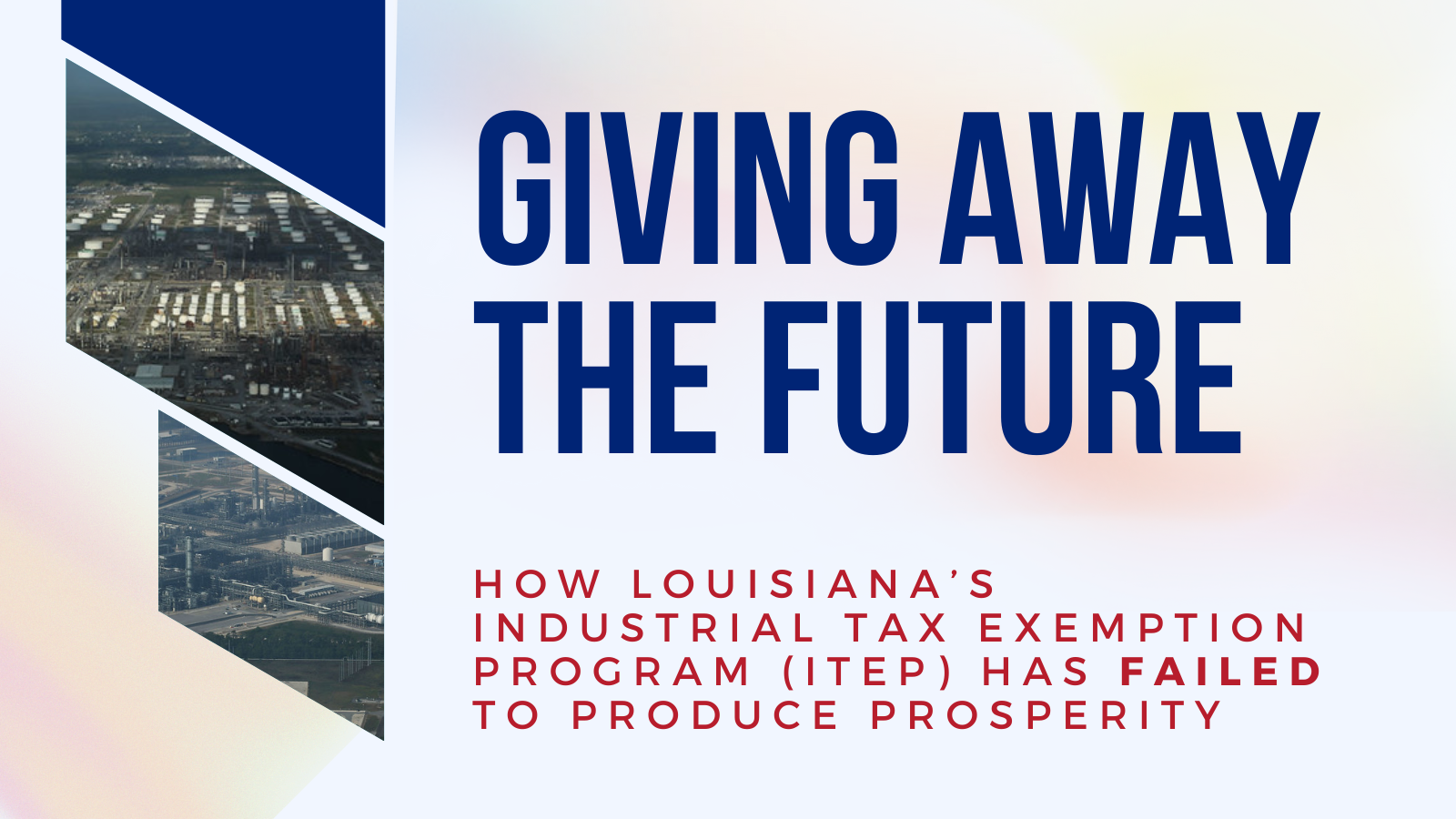Download report Download summary & toolkit
In 1936, Louisiana launched what is known as the Industrial Tax Exemption Program (ITEP), aimed to compete with other states like Mississippi who had begun to massively subsidize corporate manufacturing with tax incentives. Louisiana’s policy centralized the power to exempt manufacturers from local taxes with a state board, bypassing local leaders, sheriffs, and schools. Prior to a 2016 reform, the program exempted these companies from 100% of local taxes and contained no jobs requirements or mechanisms to ensure that Louisiana taxpayers actually received any measurable benefits for giving up local tax revenue. In fact, Louisiana has lost ground since the 1930s despite ITEP being one of the largest corporate tax subsidy programs in the nation. Louisiana has exempted tens of billions of dollars over eight decades to now economically trail states that it was once leading.
The 2016 reforms scaled back exemptions to 80% of levied taxes and instituted a local approval process as well as instituted modest job creation requirements for corporate recipients. A 2022 study found that this local approval process alone helped hundreds of millions of dollars flow back into local government services. Now, the very week that this report is released, Governor Jeff Landry has signed an executive order repealing the job creation requirements and stripping approval power away from local councils, sheriffs, and school boards.
This report aims to analyze the overall effectiveness of ITEP with the most rigorous economic and statistical analysis of the program to date, using actual jobs and income data. The main goal is to assess whether ITEP has been at all correlated with net job and income increases in the state or whether it represents a subsidy that simply shuffles money around the state and provides a windfall for multinational companies who export most of their production value outside of Louisiana’s borders.
Key Findings:
- The amount of dollars exempted by ITEP has no statistically significant relationship to personal income growth. That is, the parishes where personal incomes rose the most often had the lowest ITEP utilization, after controlling for other factors and vice versa.
- Results 1 and 2 together support the conclusion that the wider economic benefits of ITEP are overstated, relying on inflated and unsubstantiated indirect and induced job claims.
- ITEP dollars are partially invested in industries that are broadly in decline due to automation or outsourcing. US employment in petrochemical manufacturing is lower in 2022 than it was in 1990. This suggests that continuing to invest ITEP dollars in petrochemical projects is a losing proposition for the state’s residents and future workforce, chasing an ever-larger piece of a shrinking pie.
- Louisiana’s economy is likely over-reliant on the petrochemical industry. Louisiana has a much higher petrochemical gross domestic product (GDP) per capita ratio than any other state, including Texas. Over-reliance on petrochemicals may make the state’s economy less resilient to global trends and boom-bust cycles in the industry. This calls into question whether ITEP has helped support a continued lack of diversification in Louisiana’s economy by giving large tax advantages to specific types of manufacturing industries.
- GDP produced by the petrochemical industry does not translate into earnings for local workers. Parishes that have had large portions of their revenue exempted to construct plants have retained a very low percent of their per capita GDP as worker earnings. Effectively, local communities give up tax revenue to support companies who export most of the value of their product out of the state. In other cases this may increase inequality within the state as plant workers take their incomes to nearby, wealthier suburban parishes outside of the community losing tax revenue.
- Finally, because ITEP has generally been used to promote the growth of petrochemical industries that have a history of environmental pollution, it is likely that a side effect of the program has been that Louisiana’s taxpayers have indirectly subsidized the destruction of their own environment and health.

